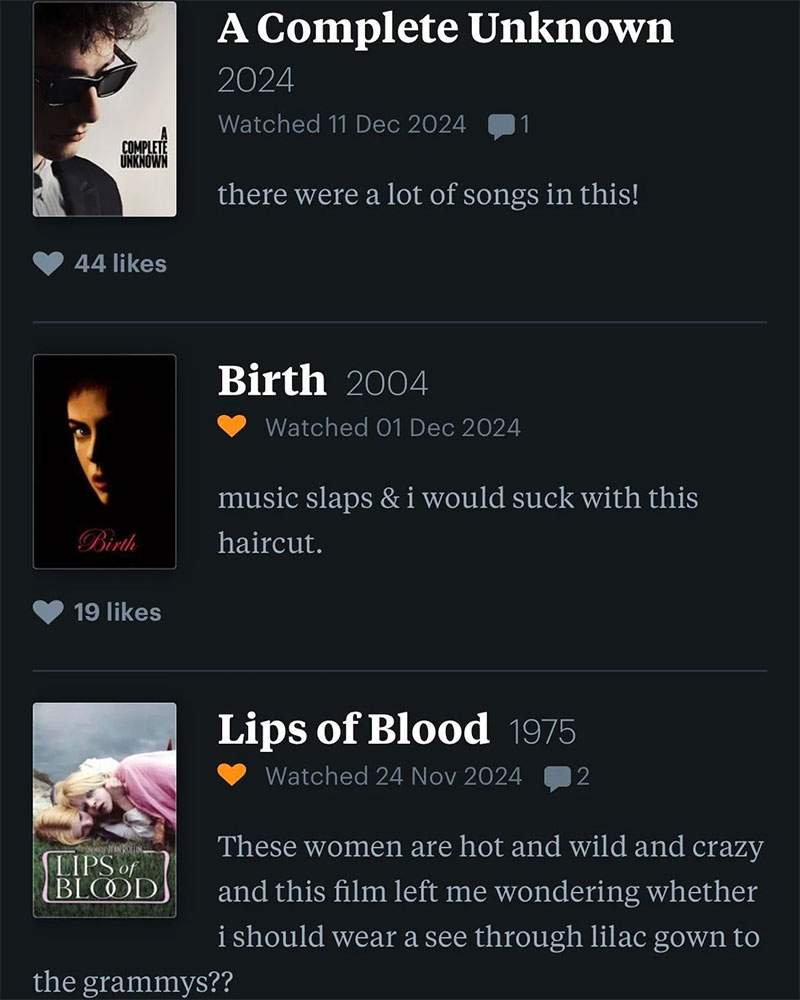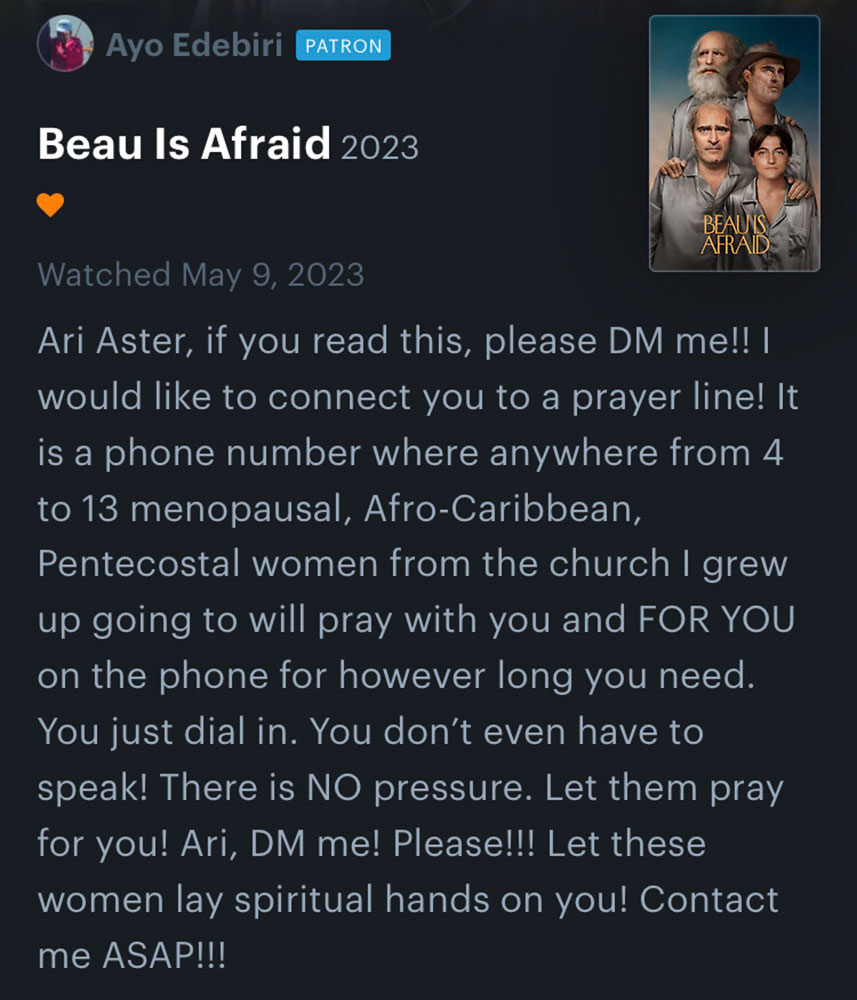
When your circle small, but y’all crazy.
I’m in this photo and I don’t like it.
A terrifying tale of dating a mama’s boy.
Average lesbian situationship.
I just reviewed four movies: Parasite, The Worst Person in the World, Anora and Love Lies Bleeding.
Each line comes from Letterboxd, the New Zealand-founded film platform where 17 million users log, rate and review movies – and have a knack for turning movie reactions into viral commentary.
Following the 2024 release of Halina Reijn's film Babygirl, the internet buzzed with headlines with key words like milk, that dance scene, that rave scene.
When I found myself in the cinema, thinking about the one-liner I would post on Letterboxd after leaving the room, I realised... something is wrong.

Now more than ever, we cling to anything that signals status. When it’s cheaper to buy eggs from The Ordinary than a NYC grocery store, and home ownership feels like a myth, people think of new ways to flex. There’s Labubus, Sonny Angels and something that’s been around much longer: cultural fluency.
Substack has seen countless think pieces on the thought daughter. Mainstream magazines have shared headlines like A book could be the sexiest accessory you could carry right now (Vogue India) and How hot-girl books became must-have fashion accessories (i-D). And TikTok has countless videos on how to appear intelligent. In short, we yearn to be viewed as culturally informed, and we want to be seen as smart.
The keywords here: being seen. We long ago said goodbye to the idea that our online self is the same self we cater to privately. We create a perfectly thought-out Frankenstein version of ourselves, out in the open to be perceived by others.

So it shouldn’t come as a surprise that an app like Letterboxd grew by over 844% in the last four years. It allows users to search movies and review them, but most importantly, it allows them to connect with their friends, who can always monitor which movies they are logging. With that function Letterboxd became a social media app, yet another place to be seen.
Whether you like the app or not, it does make for an excellent study on the way we communicate with each other online: as much about creating a digital diary as it is about leaving it open for the public.
What promised itself as an app for film geeks fast became a place to cement your status as someone who knows something about movies. What could have been a place of sharing different opinions became yet another platform to post one-liners.

If this is the one end of the spectrum, the other – discussion culture – isn’t any better. I’m referring to the phenomenon of the discussion about the particular part of any body of art that takes over the actual discussion about said body of art.
A recent example is Sabrina Carpenter’s album cover for A Man’s Best Friend, an album that hasn’t been released yet had everyone talking. The current media landscape makes it incredibly easy for everyone to voice their opinions, but it also makes it incredibly easy for us to focus on the least relevant things while discussing art. It makes it less about taking movies, books, plays for what they are – art – and more about the actress who didn’t live up to our expectations, or a lyric that could be a hint at someone’s current online crush.
What’s wrong with that is that the internet in its current form does not invite us to take in art fully, nor does it give us space or time to digest it and then review it. It either pushes us to performatively review art online, or floods us with content from, frankly, anyone in the world claiming to have an opinion about any album, movie, show.

The tide might be turning. Video essayist Mina Le has addressed the performative reviewer malaise and shared her analog reviewing routine.
Personally, I have been challenging my use of apps meant to lurk into my art consumption. I stopped using Goodreads altogether, to work on the inherent need to grade books in some made-up system, and reading has never been nicer.

With Letterboxd, I set a rule to only review and log movies a day after watching them, and write a minimum of 100 words per review. I’ve actually been able to recall more from movies reviewed in this more thought out way. No more post-ironic jokes meant to be seen by the people.
I am still being perceived, but I’m not doing it to be seen as culturally versed. I’m doing it to become culturally versed. The end goal has changed. I’ve also been seeking out proper reviews in magazines, long-form video essays, or podcasts commenting on the art I have been consuming, instead of tuning into discussion culture on TikTok or Instagram.
If art is one of the building blocks of our society, we should be able to digest it and make judgments of it that feel true to ourselves – not to the Frankenstein we’re subconsciously creating.




